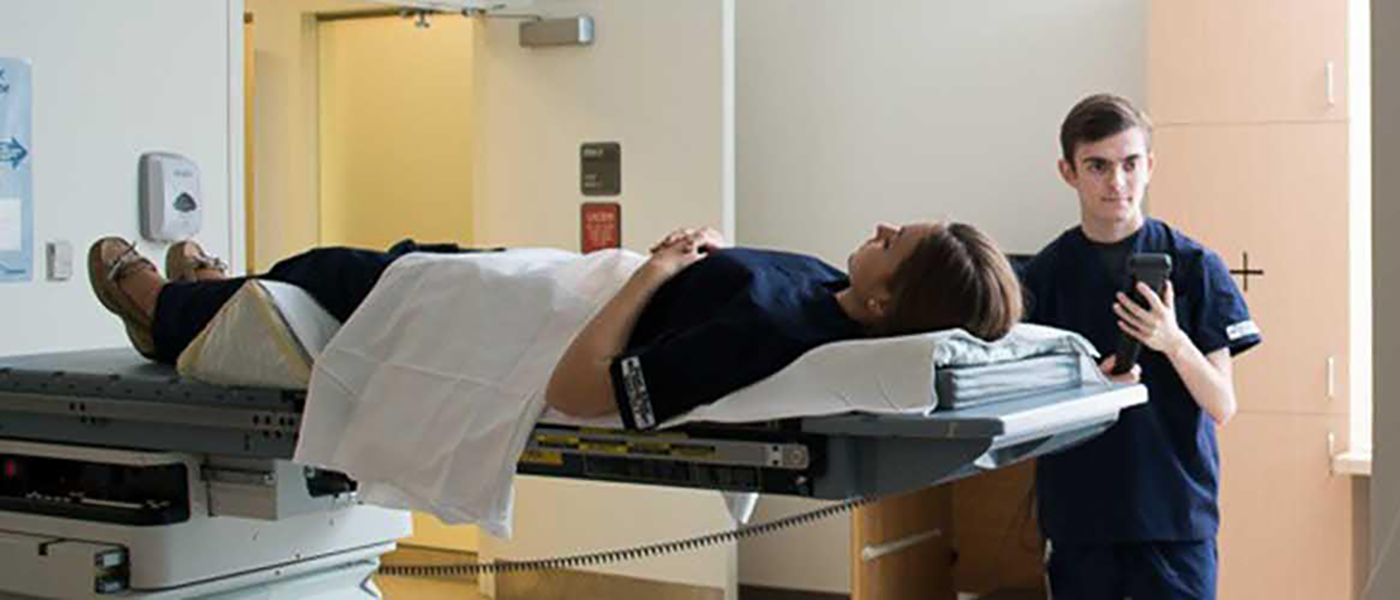Radiation Sciences
Medical Radiation Sciences uses radiant energy for the diagnosis and treatment of injuries and illnesses. Our researchers explore questions in both basic research and clinical research to improve detection and treatment options for patients.
Information Box Group
Michael Farquharson
Professor
Research Interests:
Analysis of Surgical Margins using X-ray Interaction Data, Synchrotron Micro Probe XRF mapping of tissue, X-Ray Scattering for Materials Analysis, and Development of a tri-axial XRF instrument, an EDXRD system and a Total Reflection XRF device.
Courses:
Med Phys 1E03
Science 1A03
Med Rad Sci 1C03
Science 3RP3
Med Rad Sci 3Z06
Med Phys 4Y06
Orest Ostapiak
Associate Professor
Summary:
Quality and Safety in Intensity Modulated Radiotherapy (IMRT) Planning and Delivery. IMRT is a radiotherapy technique that is widely used to either escalate dose to target structures or to limit dose to organs at risk. My research interests stem from our clinical efforts to maintain a high level of quality and safety while accommodating the increased complexity associated with IMRT planning and delivery. Specific projects have included the use of the electronic portal imager for patient specific quality assurance; dosimetry of IMRT fields; and development of IMRT techniques.
Research Interests:
Quality and Safety in Intensity Modulated Radiotherapy (IMRT) Planning and Delivery
Marcin Wierzbicki
Associate Professor
Research Interests:
Image Registration Optimization
Image registration is the process of computing a geometric transformation that aligns homologous points in two images. My interest lies in applying this process in radiation therapy. Translation of basic algorithms into clinically feasible ones requires the optimization of accuracy, robustness, and computational efficiency. Image Guided Radiation Therapy (IGRT). Many linear accelerators are capable of acquiring 3D images of the patient prior to delivering a fraction of radiation therapy. Such images reveal patient setup error and normal anatomical motion. I am currently working on software algorithms for modifying treatment parameters in response to such changes. Atlas-Based Treatment Planning. Complex treatment planning is often extremely patient-specific and therefore time consuming. This may lead to large variability in treatment quality across patients. I am interested in the feasibility of building a multi-subject, plan database and customizing this atlas to future patients.
Courses:
Med Phys 778
Michael Farquharson
Professor
Research Interests:
Analysis of Surgical Margins using X-ray Interaction Data, Synchrotron Micro Probe XRF mapping of tissue, X-Ray Scattering for Materials Analysis, and Development of a tri-axial XRF instrument, an EDXRD system and a Total Reflection XRF device.
Courses:
Med Phys 1E03
Science 1A03
Med Rad Sci 1C03
Science 3RP3
Med Rad Sci 3Z06
Med Phys 4Y06
Michael Farquharson
Professor
Research Interests:
Analysis of Surgical Margins using X-ray Interaction Data, Synchrotron Micro Probe XRF mapping of tissue, X-Ray Scattering for Materials Analysis, and Development of a tri-axial XRF instrument, an EDXRD system and a Total Reflection XRF device.
Courses:
Med Phys 1E03
Science 1A03
Med Rad Sci 1C03
Science 3RP3
Med Rad Sci 3Z06
Med Phys 4Y06
Orest Ostapiak
Associate Professor
Summary:
Quality and Safety in Intensity Modulated Radiotherapy (IMRT) Planning and Delivery. IMRT is a radiotherapy technique that is widely used to either escalate dose to target structures or to limit dose to organs at risk. My research interests stem from our clinical efforts to maintain a high level of quality and safety while accommodating the increased complexity associated with IMRT planning and delivery. Specific projects have included the use of the electronic portal imager for patient specific quality assurance; dosimetry of IMRT fields; and development of IMRT techniques.
Research Interests:
Quality and Safety in Intensity Modulated Radiotherapy (IMRT) Planning and Delivery
Orest Ostapiak
Associate Professor
Summary:
Quality and Safety in Intensity Modulated Radiotherapy (IMRT) Planning and Delivery. IMRT is a radiotherapy technique that is widely used to either escalate dose to target structures or to limit dose to organs at risk. My research interests stem from our clinical efforts to maintain a high level of quality and safety while accommodating the increased complexity associated with IMRT planning and delivery. Specific projects have included the use of the electronic portal imager for patient specific quality assurance; dosimetry of IMRT fields; and development of IMRT techniques.
Research Interests:
Quality and Safety in Intensity Modulated Radiotherapy (IMRT) Planning and Delivery
Marcin Wierzbicki
Associate Professor
Research Interests:
Image Registration Optimization
Image registration is the process of computing a geometric transformation that aligns homologous points in two images. My interest lies in applying this process in radiation therapy. Translation of basic algorithms into clinically feasible ones requires the optimization of accuracy, robustness, and computational efficiency. Image Guided Radiation Therapy (IGRT). Many linear accelerators are capable of acquiring 3D images of the patient prior to delivering a fraction of radiation therapy. Such images reveal patient setup error and normal anatomical motion. I am currently working on software algorithms for modifying treatment parameters in response to such changes. Atlas-Based Treatment Planning. Complex treatment planning is often extremely patient-specific and therefore time consuming. This may lead to large variability in treatment quality across patients. I am interested in the feasibility of building a multi-subject, plan database and customizing this atlas to future patients.
Courses:
Med Phys 778
Marcin Wierzbicki
Associate Professor
Research Interests:
Image Registration Optimization
Image registration is the process of computing a geometric transformation that aligns homologous points in two images. My interest lies in applying this process in radiation therapy. Translation of basic algorithms into clinically feasible ones requires the optimization of accuracy, robustness, and computational efficiency. Image Guided Radiation Therapy (IGRT). Many linear accelerators are capable of acquiring 3D images of the patient prior to delivering a fraction of radiation therapy. Such images reveal patient setup error and normal anatomical motion. I am currently working on software algorithms for modifying treatment parameters in response to such changes. Atlas-Based Treatment Planning. Complex treatment planning is often extremely patient-specific and therefore time consuming. This may lead to large variability in treatment quality across patients. I am interested in the feasibility of building a multi-subject, plan database and customizing this atlas to future patients.
Courses:
Med Phys 778




